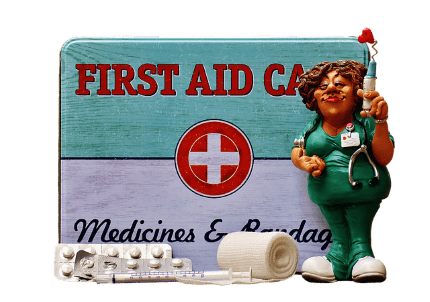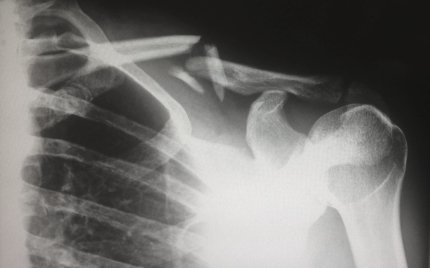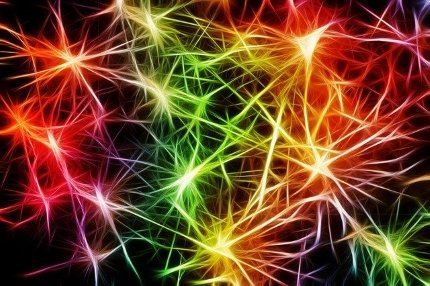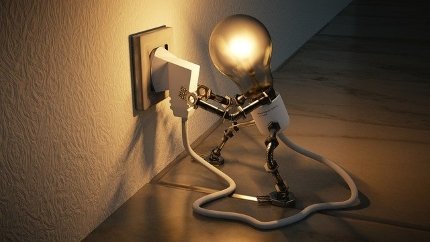Generally speaking, ginseng is one of the most potent ‘Cure-Alls’ we know of today. But is ginseng a nootropic?
How much does it improve brain function? Furthermore, is any one kind of ginseng more effective than another?
This article also looks at the differences between Asian ginseng and American ginseng.
You may prefer one over the other, depending on the benefits you’re looking for; the active ingredients in each vary.
Asian ginseng, AKA Panax Ginseng, is known to be ‘hot’ or stimulating.
American ginseng, or Panax Quinquefolius, has more of a ‘cooling’ effect.
So without further ado, let’s find out about Ginseng as a natural neutraceutical, shall we?
What is Ginseng? – Background
Ginseng has been used as a medicinal herb for thousands of years.
Most people assume that it originated in Asia, but Native North Americans have been using it for hundreds of years as well.
There are 13 species of Ginseng that we know of, but Panax Ginseng and Panax Quinquefolius are the 2 species most commonly used for their healing properties.
The density of active ingredients is increased when it is grown in colder climates, and as the plant gets older.
The plants are only harvested after growing them for at least 5 years.
The active ingredients in Ginseng are called ‘Ginsenosides’, and about 200 have been identified in Panax Ginseng, and 100 in Panax Quinquefolius.
In total, about 50 of these compounds have been found in both species, while the other compounds vary.
This explains why they can each be better at providing certain benefits, which we’ll discuss more later.
Ginseng Benefits – How Helpful is it?
Panax means, “Cure-All” in Greek, and Ginseng has indeed been found to help with just about everything.
This is a laundry list of some of the issues Ginseng is good for:
- Heart Disease
- Diabetes
- Cancer
- Neurodegenerative Diseases
- Auto-Immune Disorders
- Depression
- ADHD Symptoms
- Erectile Disfunction
- Menopause
- Fatigue – Mental & Physical
- Digestive Issues
- Skin Problems
- Poor Circulation
And it’s even good for the cold or flu! Whew! That’s quite a list.
Are you thinking that you want to have some Ginseng in your medicine cabinet at all times? Just in case?
You’re not the only one. I have a Ginseng supplement I keep handy for those days when I am feeling overwhelmed, or think I need an energy boost.
It’s really good for fighting off fatigue, and you don’t crash later once the effects wear off.
But the question still remains; how can one herbal medicine do all of these things? Is it really that effective?
What does Ginseng do for the Body?
Ginseng is an Adaptogen. What this means is that it allows the body to maintain it’s internal balance, even under stress.
There are other natural nootropics that also act as adaptogens, like Ashwagandha, Bacopa Monnieri, and Rhodiola Rosea, but Ginseng is probably the best known member of this category.
The main advantages Ginseng offers as an adaptogen are as follows:
- Antioxidant
- Anti-Inflammatory
- Stress Protection
- Immune Booster
- Fatigue Prevention
Ginseng has several compounds in it other than ginsenosides that account for all of these benefits.
It would be far beyond the scope of this article to discuss them all, so I’ll just mention a few of the better known constituents.
Ginsenosides – are steroid-like in nature, and we know that they act as antioxidants.
The antioxidant activity soaks up free radicals, thereby preventing them from causing tissue damage at the molecular level.
This in turn prevents inflammation, which ultimately translates to protection from all kinds of diseases.
Ginseng also regulates stress responses.
There are 2 ways that Ginseng manages to accomplish this:
- Increasing the effectiveness of GABA
- Equalizing Cortisol Levels
GABA, or Gamma Aminobutyric Acid, is is an inhibitory neurotransmitter best known for its’ ability to block the release of other neurotransmitters.
GABA causes a general slowing down of the nervous system, with a very noticeable calming effect.
Studies have shown that ginsenosides enhance the efficiency of GABA. They accomplish this by increasing the sensitivity of GABA receptors in the brain.
At the same time, ginsenosides also put an upper limit on how much stress hormone is released into the bloodstream.
What this means is that during times of stress, taking Ginseng has a modulating effect.
It prevents extreme fight-or-flight responses that can create imbalances in brain chemistry, or the adrenal system.
Ginsan – a polysaccharide that normalizes immune responses.
Ginseng supplementation increases levels of Ginsan, which then encourages the growth of dendrite cells.
The dendrite cells in turn produce cytokines. Cytokines are proteins that signal an immune response.
At first glance, you might think that the presence of extra Ginseng would simply give the immune system a boost.
However, Ginseng also promotes the production of Nitric Oxide gas (NO) in the dendrite cells.
Additional NO in the bloodstream actually lowers cytokine levels slightly to keep them in check.
The end result is that the immune system is strengthened, but immune responses are slightly suppressed at the same time, thereby preventing any issues with inflammation.
Last but not least, keeping Cortisol levels and immune reactions in check helps prevent injury to mitochondria.
This keeps energy metabolism at an optimum level.
These benefits are somewhat general in nature, but now it’s time to get more specific.
Let’s look at how Ginseng works as a nootropic, shall we?
Is Ginseng Good for the Brain? – How does it Improve Cognition?
Ginseng enhances the activity of the brain in a number of ways.
The main mechanism is stopping the breakdown of neurotransmitters so that they continue to do their work.
The end result is sustained levels of activity in the areas of focus and memory, as well as improvements in mood and working capacity.
Ginseng boosts brain function by acting as a:
- Vasodilator
- Anti-Depressant
- Neurotransmitter Optimizer
- Memory Enhancer
- Neural Growth Factor
I mentioned earlier that Ginseng increases the amount of Nitric Oxide gas (NO), in the bloodstream.
One of the added bonuses of that effect is that Nitric Oxide acts as a vasodilator, increasing blood circulation.
When more nutrients and oxygen can be delivered to the body and brain, energy levels improve.
Studies have also shown that Ginseng can be good for depression. The 3 neurotransmitters associated with depression are dopamine, norepinephrine, and serotonin.
Ginseng prevents these neurotransmitters from being broken down, acting as a reuptake inhibitor.
When concentrations of these neurotransmitters are sustained, it can help with depression. (This can vary depending on the root cause of the persons’ depression)
Typically, ADHD symptoms are tied to low levels of norepinephrine and serotonin. Maintaining high levels of these neurotransmitters can help reduce their severity.
A clinical study on children with ADHD in Korea found that using an extract of Panax Ginseng increased learning ability, memory, auditory reaction time, and attention.
It goes without saying that higher levels of dopamine, norepinephrine, and serotonin will result in better memory and cognition.
However, some studies also suggest that ginsenosides can encourage increased production of Nerve Growth Factor (NGF) as well.
NGF facilitates the growth of new brain cells and nerve fibers. This is a good indicator that Ginseng improves overall brain health.
Now let’s give some thought to how Asian Ginseng and American Ginseng can offer different advantages as nootropic supplements.
Asian Ginseng vs American Ginseng – Characteristics
The first thing people notice when comparing Panax Ginseng and Panax Quinquefolius is how they affect body temperature.
Generally speaking, Asian Ginseng is considered “hot”, and is often prescribed for poor circulation.
American Ginseng, by comparison, has been shown to cool overall body temperature when sleeping.
Asian Ginseng is understood to be stimulating, and has been found to improve memory, and decrease recovery time from intense cognitive tasks.
One study also found Panax Ginseng to be especially good at treating depression. In fact, the researchers found it to be nearly as effective as the prescription medication fluoxetine.
An extensive study on American Ginseng noted a few areas where Panax Quinquefolius performed better than Panax Ginseng. These are the characteristics that set it apart:
- Increases Acetylcholine Levels
- Stronger Anxiolytic
- Better Antioxidant for Lipids
- Chelates Heavy Metals
American Ginseng was found to encourage more production of the neurotransmitter Acetylcholine.
This translates to more pronounced improvements in working memory, learning ability, and the capacity to multitask.
They also discovered that American Ginseng has a more pronounced ability to increase the sensitivity of GABA receptors in the brain.
This results in a better ability to maximize stress resistance, and provide more of a calming effect, making it a good prescription for hyperactivity disorders like ADHD.
American Ginseng is also more effective at preventing the oxidation of fats, and has the capacity to clean heavy metals out of the body.
So now that we have gone over the unique advantages of Asian & American Ginseng, let’s take a look at how to use them as supplements.
Ginseng Dosage – Recommendations for Best Results
Ginseng is available as a dried root, extracts, powder, tablets, and capsules. There is a big difference between using an extract and the root itself. Extracts are concentrated, so you won’t need as much.
Some people prefer using a product that is in it’s original form, thinking that it hasn’t been tampered with as much, and is more pure.
I recommend looking for a supplement that is ‘Certified Organic’, and is ‘cGMP Certified’.
cGMP stands for ‘Current Good Manufacturing Practices’, and it means that the manufacturer is following guidelines set out by the FDA.
The products are also tested by a neutral 3rd party for safety, effectiveness, and purity before distribution. It’s the golden standard for quality in the supplement industry.
You should also keep in mind that the production standards overseas are not as stringent. If you are looking at getting a good Panax Ginseng supplement, be cautious.
There are some neuro-hackers that swear by American Ginseng simply because it’s so much easier to find a high quality product that’s safe and effective.
If you are using capsules or tablets, the recommended dosage is usually 100-400 mg/day.
However, the potency of the supplement can vary quite a bit, depending on the ginsenoside content, and how the Ginseng was prepared.
You really just need to follow the directions on the label from the manufacturer.
Ginseng also needs to by cycled. Remember, ginsenosides are steroid-like in nature.
It’s generally not a good idea to take Ginseng for extended periods of time without taking a break.
2 options for cycling include taking your Ginseng Monday to Friday with the weekends off, or taking it for 3 weeks, and taking the 4th week off at the end of the month.
Ginseng Side Effects – What You Need to Know
Side effects are generally pretty mild, but can include upset stomach, dizziness, and insomnia.
These are some of the folks that should refrain from taking Ginseng, or at least consult with their doctor first:
- Anyone under 18 years old
- Ladies that are Pregnant
- Ladies that are Breastfeeding
- Anyone on Blood Thinners
- Diabetics
- Anyone taking Anti-Depressants
- Anyone taking Anti-Psychotic Drugs
Ginseng can affect hormone balance, thin the blood, and lower blood sugar. It also regulates neurotransmitter levels, so it can double up the effects of anti-depressants, and severely interfere with anti-psychotic drugs.
You should also watch your alcohol and caffeine intake while you are using Ginseng.
Interestingly enough, both Asian Ginseng and American Ginseng have been studied for their beneficial effects in treating diabetes.
However, you should still consult with your doctor first before supplementing with either variety of Ginseng if you are diabetic. Just in case.
It could make your blood sugar drop too low.
Keep in mind, however, that Ginseng is generally considered quite safe for most individuals. It has been used for thousands of years, and has a lot to offer.
In any case, let’s wrap things up, shall we?
What’s Ginseng Good for? – What’s the Best Type for You?
Ginseng is especially useful for combating chronic fatigue.
The main advantage it has over stimulants is that it provides clean energy; there’s no crash when the effects wear off.
It also provides stress protection, a boost to your immune system, and enhances your mental capacities all at once.
So is Ginseng a nootropic? Does it boost our brain power enough to be considered a brain booster?
Yes, I think it does. We have to be mindful of our caffeine and alcohol intake, and a few contraindications, but ginseng is generally quite safe.
Ginseng is the ‘Cure-All’ herbal nootropic you always want to have in your medicine cabinet. Just in case.
In answer to the debate around Asian Ginseng vs American Ginseng, I think it really depends on what you need, and your personal preferences.
If you feel like you need something stimulating, go for Panax Ginseng. And for more of a calming effect, American Ginseng is your best bet.
One thing is for sure, whichever variety of Ginseng you choose, it’ll protect you from all kinds of ailments.
Even the common cold.
Thanks for reading, and if you have any questions, please post a comment.
In my next article, I will be looking at Maritime Pine Bark as a natural nootropic.
Until next time,
Michael











I had always assumed that gingseng came only from Asia, I did not know that Native Americans had also been using it. I was also intrigued to find out that Canada is the largest exporter of ginseng. I had not expected that. There is a lot I do not know about gingseng, for example that it’s good for stress relief.
I find the differences you mention between Asian and American ginseng very interesting. I have always sworn by turmeric and cbd oil, but now that I know of these amazing benefits that ginseng has, I may be using that from now on. Cure all, I had no idea. I’m glad I read this article!
Hi Christine,
Thanks for reading my article. Really appreciate your interest!
Yes, Native North Americans have been using American Ginseng for hundreds of years. There’s a bit more history on it if you click on the link for the supplement I recommend from Brain Forza.
We grow a lot of it here in Canada, and lots of it gets exported. The growing conditions are really good here, and in the Northern U.S. as well, especially Wisconsin apparently.
Thanks for reading, and if you do end up trying Ginseng, please let me know how it goes for you.
Michael
Not to sound dumb – but what are nootropics? I am not familiar with the term. But, that is really not what I wanted to comment on/ask about. Wow. I take a lot of supplements, but have not really investigated Ginseng. For some reason, I had the feeling that it could be dangerous to take as a supplement. But, you really got me excited about looking into Ginseng. I guess I didn’t realize there were two choices: Panax and American. Ok – from what I understand, the results are cumulative? So, I need to take it consistently for a while before I see ongoing effects? Did I get that right? So, then, about how long before I start feeling the effects? Also, American ginseng is calming – would it be good for sleep? In these crazy times, I am definitely having trouble sleeping and so wondering whether it would help with that? Also, does it matter when you take the dose? This might be another dumb question – but could you take the Panax in the morning for energy and the American in the evening to help with sleep? Or would they conflict with each other? Finally – sorry so many questions – but does Panax ginseng make you jittery or just help give you a feeling of being energized? Thanks for such a thorough discussion of ginseng. I will definitely be purchasing ginseng once I figure out which one would be best for me.
Hey Janice,
Thanks for reading my post on Ginseng. Glad you got a lot out of it!
In answer to your questions, nootropics are compounds that can improve cognitive function with little or no side effects.
The results of taking Ginseng are usually felt right away, and both varieties can keep you awake if you take them late in the day. Just to clarify a little bit, both types of Ginseng will optimize neurotransmitter levels, and so they can both cause insomnia.
The difference we see is how they affect body temperature when we are sleeping. Panax Ginseng increases blood circulation and body temperature, whereas American Ginseng keeps the body cool while sleeping.
You could take Asian Ginseng in the morning, and American Ginseng in the afternoon, but I think you would be better off just taking one supplement. You shouldn’t feel jittery at all with Panax Ginseng, just energized.
One of the best parts about Ginseng is how it can provide an energy boost without any jitters or crash after the effects wear off.
Please post another comment if you do try Ginseng, and let me know how it goes for you!
And of course, if you have any more questions later, just give me a holler!
Michael
Hi Michael,
I was quite interested in your article. There were many things I learned that I did not already know.
I was surprised that Canada is the largest exporter of Ginseng in the world. I have always associated Ginseng with Asian medicine. There are far more benefits to Ginseng than I was aware of. As you say, it should be in everyone’s medicine cabinet.
After reading your article, I will want to study more into the benefits of each one.
Thanks for writing this!
Hi Carolyn,
Thanks for reading my article. Glad you enjoyed it.
There have been many many many studies done on Ginseng for all kinds of diseases and ailments. I had to dig pretty deep to find clinical studies that pinpointed the difference between the 2 varieties.
If you do find out something interesting about what makes Asian Ginseng and American Ginseng different from one another, please post another comment here. I’d really like to share that information with all of my other readers as well.
Michael
Great article,
It’s crazy how many benefits these kinds of things have. I’m curious, are they addictive at all?
Something with so many benefits; especially energy level, must have some sort of mental withdrawal if you stop using them?
Hello Umar,
Thank you for reading my post.
Ginseng is not addictive, but the active ingredients do have steroid-like qualities, so it’s a good idea to cycle Ginseng. What this means is you give your body a break. A common schedule for cycling can be taking Ginseng Monday to Friday, and not taking it on the weekends.
There is a list of people that should be careful about using Ginseng as a supplement at the end of the article as well.
If you have any questions, please post another comment here, and I’ll get right back to you.
Michael.
Hi Michael,
You definitively surprised me.
It’s well known that Ginseng is very healthy, but I didn’t know that there are many species of Gingseng, and that they actually have different properties.
You gave us so much interesting information about it, and all in one page. It would have taken hours for me to collect the same amount of information.
Thanks so much for putting this article together.
Nice job!
Andrea
Hi Andrea,
Thanks for reading my article. I’m glad you got a lot out of it.
I always try to help my readers discover something new when I do my research. Thanks for your appreciation! Finding good reference material for this post was pretty tough.
If you would like to share, you can use one of the media buttons on my site. If you or someone you know could benefit from using Ginseng, please tell them about it.
Michael
Hi Micheal!
Thank you very much for sharing this with me. I’ve learned a lot from this post.
I have been taking ginseng for some time now, but actually didn’t know there are several different types. It’s great to know the different benefits each variety can offer.
I also never suspected Canada is the largest exporter of it.
Thanks once again.
Hey there,
Thanks for taking the time to read my post.
There are 13 types of ginseng that have been identified so far, but the 2 varieties that are most often used as medicines are Panax Ginseng and Panax Quinquefolius.
They have some common characteristics, and some benefits that are specific to the species.
If you think of any questions, feel free to give me a holler!
Michael
Hello, really awesome post!
I have always used ginseng, and I’m quite familer with all its health benefits, but I have never thought they were of different types, Asian ginseng and America ginseng, its so good to have learned that from this post, thanks for sharing.
I hope this helps someone else also.
Hey Jomata,
Thanks for reading my post. Glad you found it informative.
You are welcome to share my article with others by using the share buttons on my site. Sharing is caring!
Michael